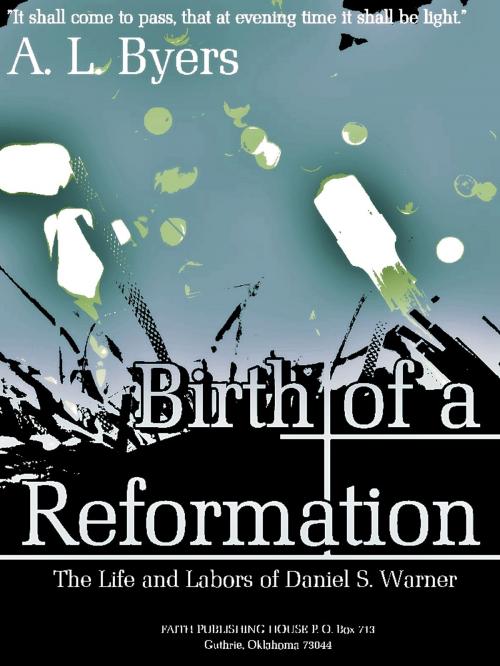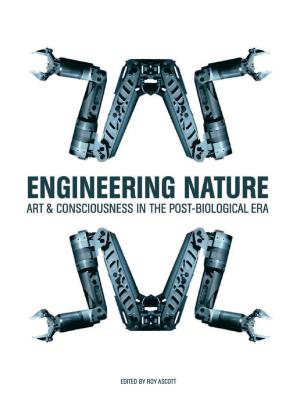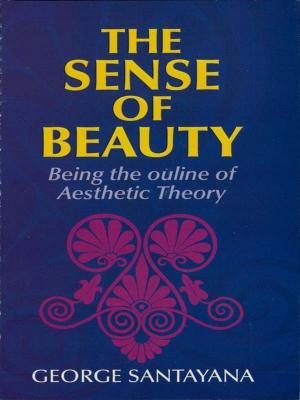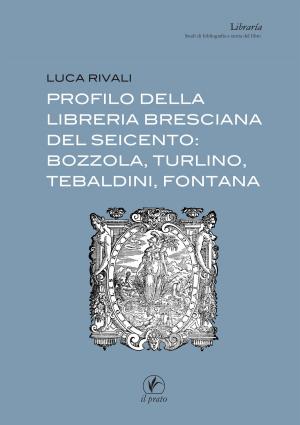Birth of a Reformation
The Life and Labors of Daniel S. Warner (Illustrations)
Nonfiction, Entertainment, Music, Theory & Criticism, History & Criticism, Biography & Memoir, Artists, Architects & Photographers, Art & Architecture| Author: | Andrew Byers | ISBN: | 1230000313778 |
| Publisher: | FAITH PUBLISHING HOUSE | Publication: | March 19, 2015 |
| Imprint: | Language: | English |
| Author: | Andrew Byers |
| ISBN: | 1230000313778 |
| Publisher: | FAITH PUBLISHING HOUSE |
| Publication: | March 19, 2015 |
| Imprint: | |
| Language: | English |
The life and labors of D. S. Warner are so closely associated with a religious movement that any attempt at his biography becomes in part necessarily a history of that movement. I have therefore chosen the term, Birth of a Reformation, as a part of the title of this book. Brother Warner (to use an appellation in keeping with the idea of universal Christian brotherhood) was doubtless chosen of God as an instrument for accomplishing a particular work. What that work was, why it may be called a reformation, and why, in particular, it may be considered the last reformation, a few words of explanation by way of introduction are offered the inquiring reader.
It will be necessary to take a brief glance over the Christian era and review some of the important events and conditions. We note the characteristics of the church in the days of the apostles, which, by reason of its recent founding and organization by the Holy Spirit, is naturally regarded as exemplary and ideal. It had no creed but the Scriptures and no government but that administered by the Holy Spirit, who 'set the members in the body as it pleased him'—apostles, prophets, teachers, evangelists, pastors, etc. Thus subject to the Spirit, the early church was flexible, capable of expansion and of walking in all the truth and of adjusting itself to all conditions. It was in very essence the church, the whole, and not a section or part. The apostles and early believers did not restrict themselves and become a Jewish Christian sect or any other kind of sect. Peter's way of thinking would have thus limited him, for as a Jew he declined any particular interest in Gentile converts; but the Lord through a vision changed his mind and advanced his understanding to include the universality of the Christian kingdom. The Holy Spirit in the heart was necessary, of course, to the successful government of the church by the Spirit, otherwise he could not have been understood. There were no dividing lines, for it was the will of the Lord particularly that there be "one fold and one shepherd." Jesus had prayed in behalf of the disciples "that they all may be one; as thou, Father, art in me, and I in thee, that they also may be one in us: that the world may believe that thou hast sent me". These conditions of being subject to the word and Spirit, of leaving an open door through which greater light and truth might enter as was necessary, and of possessing the love and unity of spirit that cemented the believers together and carried them through all their persecution, constituted the ideal and normal status of God's church on earth as he gave it beginning, of which it was ordained that there should be but one, only one, as long as the world should endure. "There is one body, and one Spirit, even as ye are called in one hope of your calling".
The life and labors of D. S. Warner are so closely associated with a religious movement that any attempt at his biography becomes in part necessarily a history of that movement. I have therefore chosen the term, Birth of a Reformation, as a part of the title of this book. Brother Warner (to use an appellation in keeping with the idea of universal Christian brotherhood) was doubtless chosen of God as an instrument for accomplishing a particular work. What that work was, why it may be called a reformation, and why, in particular, it may be considered the last reformation, a few words of explanation by way of introduction are offered the inquiring reader.
It will be necessary to take a brief glance over the Christian era and review some of the important events and conditions. We note the characteristics of the church in the days of the apostles, which, by reason of its recent founding and organization by the Holy Spirit, is naturally regarded as exemplary and ideal. It had no creed but the Scriptures and no government but that administered by the Holy Spirit, who 'set the members in the body as it pleased him'—apostles, prophets, teachers, evangelists, pastors, etc. Thus subject to the Spirit, the early church was flexible, capable of expansion and of walking in all the truth and of adjusting itself to all conditions. It was in very essence the church, the whole, and not a section or part. The apostles and early believers did not restrict themselves and become a Jewish Christian sect or any other kind of sect. Peter's way of thinking would have thus limited him, for as a Jew he declined any particular interest in Gentile converts; but the Lord through a vision changed his mind and advanced his understanding to include the universality of the Christian kingdom. The Holy Spirit in the heart was necessary, of course, to the successful government of the church by the Spirit, otherwise he could not have been understood. There were no dividing lines, for it was the will of the Lord particularly that there be "one fold and one shepherd." Jesus had prayed in behalf of the disciples "that they all may be one; as thou, Father, art in me, and I in thee, that they also may be one in us: that the world may believe that thou hast sent me". These conditions of being subject to the word and Spirit, of leaving an open door through which greater light and truth might enter as was necessary, and of possessing the love and unity of spirit that cemented the believers together and carried them through all their persecution, constituted the ideal and normal status of God's church on earth as he gave it beginning, of which it was ordained that there should be but one, only one, as long as the world should endure. "There is one body, and one Spirit, even as ye are called in one hope of your calling".















